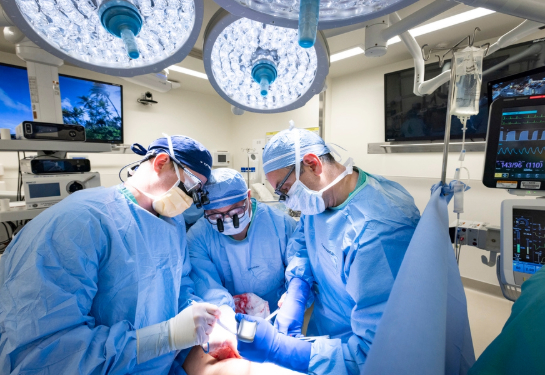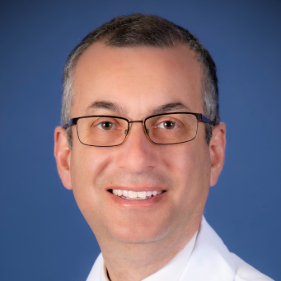UC Davis Health’s liver transplant program receives Medicare and Medicaid certification
Transplant Center expands access to care by accepting patients covered by government-sponsored insurance
The UC Davis Transplant Center has been certified as a liver transplant program by the Centers for Medicare and Medicaid Services (CMS).
By gaining CMS certification, UC Davis Health can now accept potential liver transplant patients insured by Medicare or Medicaid (also known as Medi-Cal in California). The designation greatly expands access to life-saving liver transplants for patients throughout Northern California.
“This is a significant milestone for the UC Davis Transplant Center in that it recognizes the quality of care and services we are providing patients throughout the region,” said Sophoclis Pantelis Alexopoulos, medical director for the Transplant Center and chief of abdominal transplant surgery. “CMS certification is validation we have the proper infrastructure and resources for our program to be successful. This is just another example of UC Davis Health’s commitment to providing world-class care to our community.”
“This is a significant milestone for the UC Davis Transplant Center in that it recognizes the quality of care and services we are providing patients throughout the region.” —Sophoclis Pantelis Alexopoulos
To gain certification, transplant programs must meet stringent quality of care requirements stipulated by CMS. These include clinical experience, excellent patient care, superior outcomes, expert staff and adherence to the highest standards of safety.
As part of the CMS certification process, the agency conducts surveys to evaluate the performance and effectiveness of the program, obtains outcome data from the United Network for Organ Sharing (UNOS) and conducts a site visit. In addition, transplant programs must perform a minimum of 10 liver transplants in the first 12 months of operation.
UC Davis Health has completed 26 liver transplants since the program started in July 2023. Each patient has had a successful outcome, and the survival rate is 100%.
While the liver transplant program is less than a year old, the UC Davis Transplant Center has been a leader in organ transplantation since its inception in 1985. Recently, the center was selected as a model hospital by UNOS and chosen by CMS to guide national best practices for transplants.
A major advantage for patients getting a liver transplant at UC Davis Health is that it’s part of an academic medical center, which includes many specialists and other expert providers who work as a team on the patient’s behalf.
“An important facet for any transplant program, and a must for those who earn CMS certification, is having a multidisciplinary approach to the care of the liver transplant patient.”—Lea K. Matsuoka
“An important facet for any transplant program, and a must for those who earn CMS certification, is having a multidisciplinary approach to the care of the liver transplant patient, including surgeons, nurses, hepatologists, dietitians, transplant pharmacists, physical therapists, financial counselors and social workers who provide full-service care for the needs of our patients throughout the entire transplant process,” said Lea K. Matsuoka, section chief for liver transplantation and hepatobiliary surgery in the Division of Transplant Surgery. “This certification is an incredible testament to the high-quality team we have providing care each day to our patients, she added.
The transplant program serves patients in the 33 counties UC Davis Health covers, which includes a 65,000-square-mile area north to the Oregon border and east to Nevada.
A liver transplant is a complex operation that replaces a patient's diseased liver with a whole or partial healthy liver from another person. Liver transplants are performed for a variety of conditions, including:
- Alcohol-associated liver disease
- Autoimmune diseases
- Fatty liver disease
- Liver cancer
Transplantation remains the only cure for liver insufficiency or liver failure because no device or machine reliably performs all the functions of the liver.
According to the U.S. Health Resources & Services Administration, livers are the second-most awaited organ transplant, with over 10,500 people on the waiting list in 2023.
“For liver disease patients, access to advanced therapies, including transplantation, can be difficult,” explained Alexopoulos. “At UC Davis Health, we are committed to ensuring equitable access to transplantation for all patients.”








